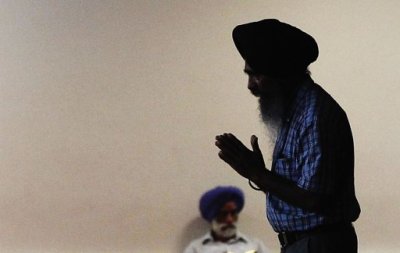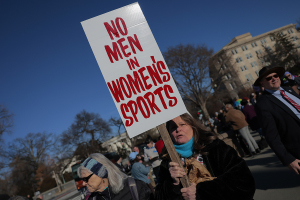Sikh prayer at RNC: Why as an Evangelical I have no problem with this

A minor kerfuffle erupted on the first night of the Republican National Convention in the wake of California’s Republican National Committeewoman Harmeet Dhillon’s prayer which included the statement, “Dear Waheguru, our one true God.” Ms. Dhillon is a Sikh, so her prayer was quite in line with her faith, just as I, as a Christian, would pray “in the name of Jesus Christ, your only begotten Son.”
People immediately hit social media decrying Ms. Dhillon’s prayer. One representative post serves as an example: “This was a HUGE SLAP IN THE FACE to our nation’s founding and to Christian conservatives.”
Actually, Ms. Dhillon’s prayer should serve as a classic example of the “pluralism” that we say we believe in in America. What is pluralism? It is the belief that everyone in America has the right, based on the Constitution and its First Amendment, to express their religious beliefs according to the dictates of their own consciences in the public square without fear of censorship, bias or prejudice.
Liberals have attempted to achieve religious “neutrality” in the public square by enforcing a religiously sanitized public square. Alternatively, many have tried to exclude all but the majority religious viewpoint. Both of these approaches are flawed and wrong, and both violate some citizens’ constitutional rights to freedom of religion. The well-known phrase, “I disagree with everything you say, and I will fight to the death to defend your right to say it,” illustrates this truth.
If you allow the government, or anyone else, to censor the public square, you do not have true freedom of religion or freedom of speech.
Now it is true that the Republican National Convention is not, in the strict sense, the unrestricted “public square.” However, it is also not a church or a place of worship, where worshippers would have the right to restrict speech to only faith statements and prayers in agreement with their faith tradition.
When organizations like the Republican National Convention do congregate, they very often have traditionally opened and closed their sessions with invocations and benedictions. If the GOP wants Sikhs and other religious minorities to support them they should be willing to have their faith represented in such prayers at least occasionally.
I know that when I have been asked to pray at such public occasions, I always make it clear that I will be praying “In Jesus’ name,” not some “dumbed down,” non-descript prayer to the “Creator,” etc.
When I make this argument for pluralism, I often receive objections from traditional Christians that allowing anyone to pray exposes our children to false religious teachings. Whenever I hear this objection, I think of the biblical prophet Elijah and his confrontation with the prophets of Baal (I Kings 18).
As the Bible relates it, Elijah challenges the prophets of the pagan god Baal to a contest. He challenged them to pray to their god and he would pray to the one true God and we would see which prayers God answers.
When our children hear prayers to a different god than the God of Abraham, Isaac, and Jacob, we have the opportunity to explain the difference and draw their attention to whose prayers get answered and whose prayers don’t.
We should espouse and practice pluralism in the public square and government spaces. We should not practice pluralism within our places of worship and our religiously affiliated educational institutions. I am a Southern Baptist and I expect a Southern Baptist church to have speakers who espouse Southern Baptist beliefs. I would expect a Roman Catholic church to have speakers who espouse Roman Catholic beliefs. Differing faith traditions have a responsibility to maintain the integrity of their faith traditions within their own institutions.
However, in the public square, we should espouse and defend pluralism, defending the right of all our fellow citizens to express their faith in the public square. And we should always remember that if we allow someone’s faith to be discriminated against today, we may find our own faith discriminated against tomorrow.
Dr. Richard Land, BA (Princeton, magna cum laude); D.Phil. (Oxford); Th.M (New Orleans Seminary). Dr. Land served as President of Southern Evangelical Seminary from July 2013 until July 2021. Upon his retirement, he was honored as President Emeritus and he continues to serve as an Adjunct Professor of Theology & Ethics. Dr. Land previously served as President of the Southern Baptist Convention's Ethics & Religious Liberty Commission (1988-2013) where he was also honored as President Emeritus upon his retirement. Dr. Land has also served as an Executive Editor and columnist for The Christian Post since 2011.
Dr. Land explores many timely and critical topics in his daily radio feature, “Bringing Every Thought Captive,” and in his weekly column for CP.



























